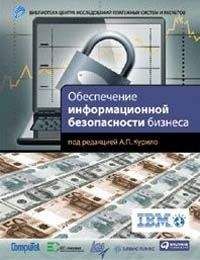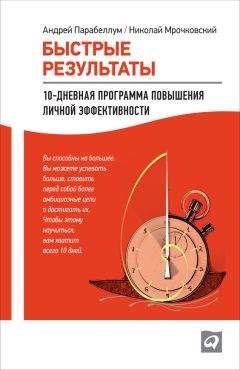Andrew Lobaczewski - Political Ponerology: A Science on the Nature of Evil Adjusted for Political Purposes
eliminate the effects of a ponerological process which has long
been surmounted?
Based on experience gleaned from individual patients, a
psychotherapist would doubt such a possibility. The conse-
quences of the influence of pathological factors can only be
definitely liquidated if a person becomes aware that he was the
object of their activity. Such a method of careful correction of
detail may sound reminiscent of the work done by an art re-
storer who decided against removing all later paint-overs and
revealing the master’s original work in toto, but rather retained
and conserved a few failed corrections for posterity.
274
PATHOCRACY AND RELIGION
Even against the conditional backdrop of time furthering the
healing process, such efforts at step-by-step untying of knots
based on the natural world view only leads toward a moralizing
interpretation of the effects of uncomprehended pathological
factors, with the consequence of panic and the tendency to
retreat to an apparently safer side. The organism of the relig-
ious group thus will retain some dormant foci of the disease
which may become active under certain permitting conditions.
We should therefore realize that following the path of natu-
ralistic apperception of the process of the genesis of evil, at-
tributing the proportionate “fault” to the influence of various
pathological factors, can ease our minds of the burden repre-
sented by the disturbing results of a moralizing interpretation of
their role in ponerogenesis. This also permits more detailed
identification of the results of their operation, as well as defini-
tive elimination thereof. Objective language proves to be not
only more accurate and economical to work with, but also
much safer as a tool of action when dealing with difficult situa-
tions and delicate matters.
Such a more precise and consistent solution for the prob-
lems inherited from centuries of ponerological nescience is
possible whenever a given religion represents a current of
gnosis and faith which was originally authentic enough. A
courageous approach to remedying conditions caused by pres-
ently perceptible poneric processes, or by chronic perseverance
of survivals from such states far in the past, thus demands both
acceptance of this new science and a clear conviction of origi-
nal truth and basic science. Doubts will otherwise block any
such intent by means of insufficiently objectified fear, even if
they have been repressed deep into the subconscious. We must
be convinced that the Truth can endure such a washing in
modern detergent; not only will it not lose its eternal values,
but it will actually regain its original freshness and noble col-
ors.
With regard to the second above-mentioned situation, when
the ponerogenic process leading to pathocracy has affected
some secular and political movement, the situation of religion
in such a country will be completely different. Polarization of
attitudes with regard to religion then becomes inevitable. The
POLITICAL PONEROLOGY
275
social religious organization cannot help but assume a critical
attitude, becoming a support for opposition on the part of the
society of normal people. This in turn provokes the movement
affected by this phenomenon to an ever more intolerant attitude
toward religion. Such a situation thus places a given society’s
religion before the specter of physical destruction.
Whenever pathocracy emerges in an autonomous process,
this means that the religious systems dominating that country
were unable to prevent it in time.
As a rule, the religious organizations of any given country
have sufficient influence upon society to be able to oppose
nascent evil if they act with courage and reason. If they cannot,
this is the result of either fragmentation and strife among vari-
ous denominations or of internal corruption within the religious
system. As a result, religious organizations have long tolerated
and even uncritically inspired the development of pathocracy.
This weakness later becomes the cause of religion’s disasters.
In the case of an artificially infected pathocracy, the relig-
ious system’s joint liability may be lesser, albeit still generally
concrete. It is justified to exonerate a country’s religious sys-
tems for the state of affairs if the pathocracy has been imposed
by force. Specific conditions emerge in this situation: the relig-
ious organizations have the morally stronger defensive posi-
tion, are able to accept material losses, and can also undergo
their own recuperative process.
Pathocrats may be able to use primitive and brutal means to
combat religion, but it is very difficult for them to attack the
essence of religious convictions. Their propaganda proves
overly primitive and brings about the familiar phenomena of
immunization or resistance on the part of normal people, with
the final result being the opposite of the intended moral reac-
tion. Pathocrats can only use brute force to destroy religion if
they feel the latter’s weakness. The principle of “divide and
conquer” can be used if there are various denominations with a
long history of enmity, but the effects of such measures are
generally ephemeral and can lead to unity among the denomi-
nations.
The specific practical knowledge collected by the society of
normal people under pathocratic rule, together with the phe-
276
PATHOCRACY AND RELIGION
nomenon of the psychological immunization, begin to exert
their own characteristic effect upon the structure of religious
denominations. If some religious system succumbed to ponero-
genic infection sometime during its history, the effects and
chronic survivals thereof persevere within for centuries. As
already adduced, remedying this by means of philosophical and
moral reflections meets with specific psychological difficulties.
But under pathocratic rule, in spite of the abuse suffered by
such a religious organization, the latter organism specific anti-
bodies are transfused which cure the ponerogenic survivals.
Such a specific process aims at ridding the religious struc-
ture of those deformations which were the effect of the opera-
tion of the pathological factors familiar to us. Insofar as the
appearance of pathocracy in various guises throughout human
history, always resulting from human errors which opened the
door to the pathological phenomenon, one must also look on
the other side of the coin. We should understand this in the
light of that underrated law, when the effect of a particular
causative structure has a teleological meaning of its own. It
would, however, be highly advantageous for this recuperative
process to be accompanied by greater awareness of the nature
of the phenomena, which also acts similarly in terms of devel-
oping psychological immunity and healing human personali-
ties. Such awareness could also help elaborate safer and more
effective plans of action.
If individuals and groups believing in God are able to accept
an objective understanding of macrosocial pathological phe-
nomena, especially this most dangerous one, the natural out-
come will thus prove to be a certain separation of religious and
ponerological problematics, which qualitatively occupy differ-
ent levels of reality. Church attention can then revert to ques-
tions regarding man’s relationship with God, an area for which
churches have a calling. On the other hand, resistance to pone-
rological phenomena and their worldwide spread should be
largely assumed by scientific and political institutions whose
actions are based on a naturalistic understanding of the nature
and genesis of evil. Such a separation of duties can never be
quite consistent, since the genesis of evil includes participation
of human moral failings, and overcoming these based on relig-
POLITICAL PONEROLOGY
277
ious premises has been the responsibility of religious associa-
tions since times immemorial.
Some religions and denominations subjected to pathocratic
rule are forced by such circumstance to become overly in-
volved in matters conventionally referred to as political, or
even in economic efforts. This is necessary both in order to
protect the existence of the religious organization itself and in
order to help fellow believers or other citizens suffering abuse.
It is important, however, to avoid having such a state of affairs
become permanent in the shape of habit and tradition, since this
could later make it more difficult to revert to normal human
government.
In spite of existing differences of conviction and tradition,
the basis for cooperative effort on the part of people with good
will should contain that characteristic convergence of the con-
clusions we deduce between the precepts of the Christian Gos-
pels (and other monotheistic religions) and a ponerological
view of the genesis of evil. The faithful of various religions and
denominations do in fact believe in the same God, and at pre-
sent they are threatened by the same macrosocial pathologic
phenomenon. This creates sufficient data to enable a search for
cooperation in affecting achievements whose value is so obvi-
ous.
CHAPTER IX
THERAPY FOR THE WORLD
For centuries, attempts were made to treat various diseases
based on naive understanding and upon experience transmitted
from generation to generation. This activity was not ineffec-
tive; in many cases it produced advantageous results. Supersed-
ing this traditional medicine with the newly generating modern
science in Europe caused social health to deteriorate initially.
However, it was only with the help of modern science that
many diseases were vanquished, ailments against which tradi-
tional medicine had been helpless. This occurred because a
naturalistic comprehension of disease and its causes created a
basis for counteraction.
Regarding the phenomena discussed in this work, our situa-
tion is similar to the one engendered by the above-mentioned
crisis with reference to the health of European nations. We
have left behind the traditional socio-moral organization but
have not yet elaborated a more valuable science, one which
would fill in the gap. We therefore need newly established
criteria which can become the basis for an analogous discipline
with an enduring structure; simultaneously, this would fulfill a
burning need in today’s world.
According to contemporary understanding, effective treat-
ment of a disease becomes possible once we have apprehended
its essence, its etiological factors and their properties, and its
pathodynamic course within organisms with dissimilar biologi-
cal properties. Once such knowledge is available, finding the
POLITICAL PONEROLOGY
279
proper treatment measures generally proves a less difficult and
dangerous duty. For doctors, disease represents an interesting,
even fascinating, biological phenomenon. They often accepted
the risk of contact with the contagious pathogenic factors and
suffered losses in order to comprehend the ailment so as to be
able to heal people. Thanks to this, they achieved the possibil-
ity of etiotropic disease treatment and artificial immunization
of human organisms to disease. The doctor’s own health is thus
also better protected today; but he ought never to feel any con-
tempt for the patient or his disease.
When we are faced with a macrosocial pathological phe-
nomenon which requires us to proceed in a manner analogous
in principle to that governing contemporary medicine, espe-
cially with reference to overcoming diseases which quickly
propagate among the populations, the law demands necessary
rigorous measures which become binding upon healthy people
as well. It is also worth pointing out that people and political
organizations whose world view is leftist generally represent a
more consistent attitude in this matter, demanding such sacri-
fices in the name of the common good.
We must also be aware that the phenomenon facing us is
analogous to those diseases against which the old traditional
medicine proved inadequate. In order to overcome this state of
affairs, we must therefore utilize new means based upon an
understanding of the essence and causes of the pathocratic
phenomenon, i.e. according to principles analogous to those
governing modern medicine. The road to comprehension of the
phenomenon was also much more difficult and dangerous than
the one which should lead from such understanding to the find-
ing of naturalistically and morally justified, and properly orga-
nized, therapeutic activities. These methods are potentially
possible and feasible, since they derive from an understanding
of the phenomenon per se and become an extension thereof. In
this “disease”, as in many cases treated by psychotherapists, the
understanding alone already begins to heal human personali-
ties. The author confirmed this in practice in individual cases.
It will also appear that many known experiential results will
similarly become applicable.
280
THERAPY OF THE WORLD
The insufficiency of efforts based upon the best moral val-
ues has become common knowledge after years of rebounding




